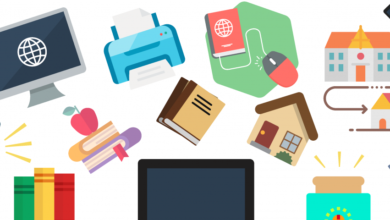How to Learn Coding for Free: Best Resources & Websites
Learn coding for free with the best resources & websites! Master programming with free courses, projects, and expert tutorials.

Learning how to code is one of the most valuable skills in today’s digital world, and the best part is that you can learn coding for free with the right resources. Whether you’re a beginner looking to start your programming journey or an experienced developer wanting to expand your knowledge, numerous high-quality platforms offer free courses, tutorials, and hands-on projects. From interactive coding exercises to full-fledged computer science courses, these resources make it easier than ever to master programming languages like Python, JavaScript, Java, and more without spending a dime.
In this article, we’ll explore the best free websites and resources to help you learn coding efficiently. We’ll cover platforms that offer structured lessons, coding challenges, and real-world projects to build your skills. By the end, you’ll have a clear roadmap to start or advance your coding journey without breaking the bank.
Why Learn Coding for Free?
The demand for Learn Coding continues to grow across industries, from software development to data science and cybersecurity. Learning coding for free allows you to explore different programming languages and fields without financial commitment. Many free resources provide the same quality education as paid courses, making it possible to gain job-ready skills at no cost. Additionally, free coding platforms often include community support, peer learning, and practical exercises that reinforce your understanding.
Best Free Websites & Resources to Learn Coding
freeCodeCamp
freeCodeCamp is one of the most popular platforms forLearn Coding for free. It offers interactive coding challenges and projects in HTML, CSS, JavaScript, Python, and more. The curriculum is project-based, meaning you’ll build real-world applications while learning. Completing their certifications can also help you build a strong portfolio for job applications.
Codecademy (Free Tier)
Codecademy provides free introductory courses in various programming languages, including Python, Java, Ruby, and SQL. While some advanced content requires a subscription, the free tier covers essential concepts with hands-on exercises. Their interactive coding environment helps beginners practice without setting up additional software.
Coursera & edX (Free Courses)
Coursera and edX partner with top universities to offer free coding courses. While some programs charge for certificates, you can audit most courses for free. Topics range from introductory programming to advanced machine learning and data structures. Institutions like Harvard, MIT, and Stanford provide high-quality content through these platforms.
Khan Academy
Khan Academy is an excellent resource for beginners, especially younger learners. Their computer programming section covers JavaScript, HTML, and CSS with interactive lessons. The platform’s simple explanations and visual approach make it ideal for those new to coding.
MIT OpenCourseWare
MIT OpenCourseWare provides free access to course materials from the Massachusetts Institute of Technology. You can find full computer science courses, including video lectures, assignments, and reading materials. This is a great option for those who want a structured, university-level education in coding.
W3Schools
W3Schools is a go-to reference for web development. It offers free tutorials on HTML, CSS, JavaScript, PHP, and SQL. Each lesson includes examples and an interactive editor where you can test code snippets. While it’s more reference-based than project-driven, it’s a valuable resource for quick learning.
The Odin Project
The Odin Project is a free, open-source curriculum for full-stack web development. It covers front-end (HTML, CSS, JavaScript) and back-end (Ruby on Rails, Node.js) technologies. The project-based approach ensures you gain practical experience by building real applications.
GitHub & Open Source Contributions
GitHub is not just a code hosting platform—it’s also a learning resource. By exploring open-source projects, you can study real-world code and contribute to projects. Many developers improve their skills by collaborating on GitHub repositories.
YouTube Tutorials
YouTube hosts countless free coding tutorials from experienced developers. Channels like Traversy Media, Programming with Mosh, and freeCodeCamp offer in-depth courses on various programming topics. Video tutorials are great for visual learners who prefer step-by-step guidance.
SoloLearn
SoloLearn offers bite-sized coding lessons on mobile and desktop. It supports multiple languages, including Python, C++, and Java. The app includes quizzes and coding challenges to reinforce learning, making it ideal for on-the-go practice.
Tips for Learning Coding Effectively for Free
Learning to code for free is entirely possible, but staying consistent and making progress requires the right approach. With countless resources available, it’s easy to feel overwhelmed or lose motivation. To help you succeed, here are some proven strategies to learn coding effectively without spending money.
Set Clear Goals
One of the most crucial steps in learning to code—especially when doing it for free—is setting clear, well-defined goals. Without a roadmap, it’s easy to get lost in the vast sea of programming languages, frameworks, and tutorials, leading to frustration and wasted time. A structured approach ensures you stay focused, motivated, and on track to achieving real progress.
Practice Daily
Consistency is the backbone of learning to code—practicing daily, even for just 30 minutes, builds muscle memory and reinforces concepts far better than sporadic marathon sessions. Daily coding helps you retain syntax, develop problem-solving intuition, and gradually tackle more complex challenges without feeling overwhelmed. Small, regular sessions also prevent burnout, allowing your brain to absorb concepts naturally between practice.
Build Projects
Simply watching tutorials or reading about code isn’t enough—you truly learn programming by building real projects. Projects force you to apply concepts in practical ways, revealing gaps in your knowledge that theory alone can’t expose. Whether it’s a simple calculator or a full-stack web app, each project strengthens problem-solving skills and builds confidence in your abilities. The hands-on experience of debugging, researching solutions, and seeing your code come to life is irreplaceable in the learning process.
Join Coding Communities
Learning to code can feel isolating, especially when you’re stuck on a problem or need motivation. That’s where coding communities come in—they provide support, networking, and real-world insights that tutorials alone can’t offer. Engaging with other learners and experienced developers helps you grow faster, stay accountable, and even discover job opportunities.
Don’t Rush
Master fundamentals before moving to advanced topics. A strong foundation prevents confusion later.
Read More: How to Write Notes That Help You Retain More Information
Conclusion
Learn Coding for free is entirely possible with the wealth of resources available today. Platforms like freeCodeCamp, Codecademy, and Coursera provide structured lessons, while YouTube and GitHub offer practical, hands-on experience. By setting clear goals, practicing consistently, and engaging with coding communities, you can build valuable programming skills without spending money.
Whether you’re aiming for a career in tech or simply want to expand your knowledge, these free resources make coding accessible to everyone. Start with one platform, stay committed, and gradually explore more advanced topics as you progress. With dedication and the right tools, you’ll be well on your way to becoming a proficient coder.
FAQs
Can I really learn coding for free?
Yes, many high-quality platforms like freeCodeCamp and Khan Academy offer free Learn Coding courses with interactive exercises.
Which programming language should I learn first?
Beginners often start with Python or JavaScript due to their simplicity and wide applications.
How long does it take to learn coding?
It varies, but with consistent practice, you can grasp basics in a few months and become job-ready in a year or two.
Do I need a degree to become a programmer?
No, many developers are self-taught or use free/paid online courses to build their skills.
How do I stay motivated while Learn Coding?
Set small milestones, work on fun projects, and join Learn Coding communities for support and accountability.







